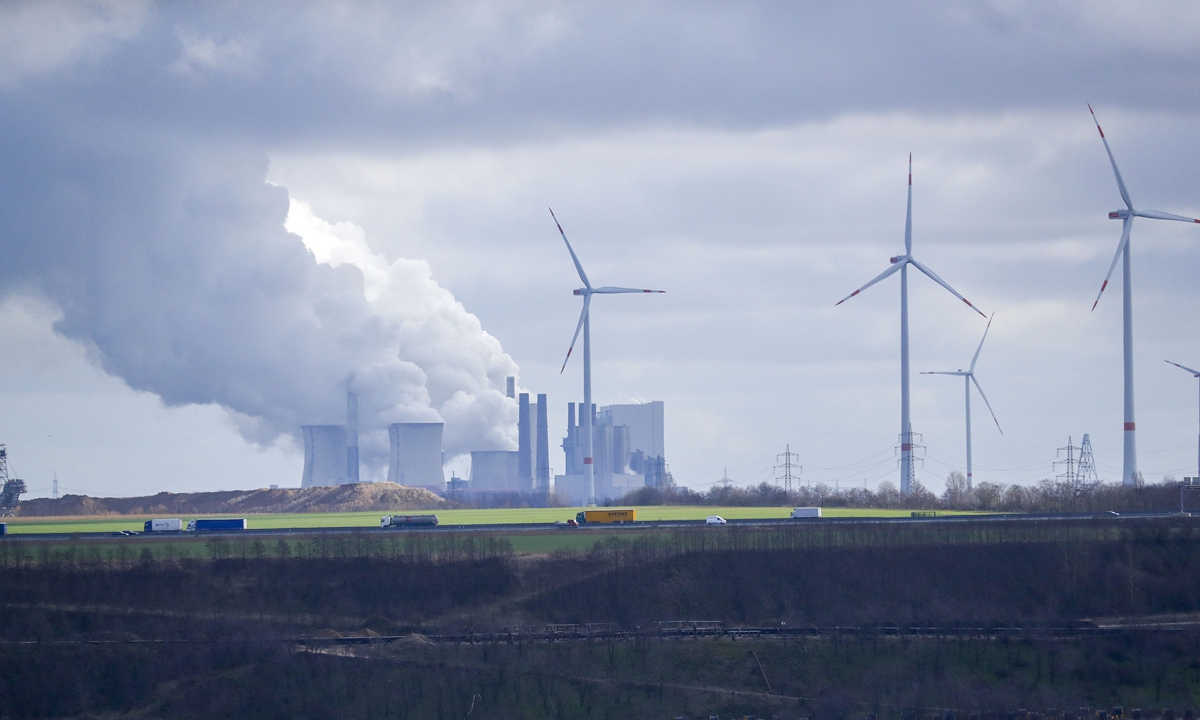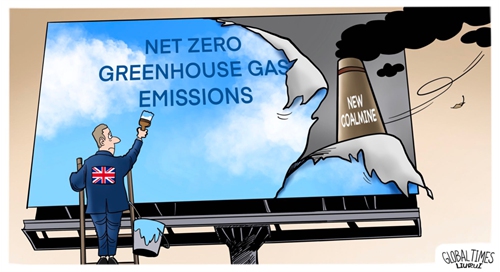
File Photo: VCG
The development marks a big step forward for the EU in accelerating emissions cuts, which is undoubtedly a great encouragement in terms of joint efforts in tackling climate change on a global scale.
The apparently increased frequency of extreme weather events around the world in recent years is a constant reminder of the urgency in working together to reduce emissions. In doing so, setting rules to raise emission standards through carbon prices has been recognized as an important mechanism for addressing the global climate challenge, which is also seen as the best way to guide the energy transition to a low-carbon economy.
Since the EU is one of China's major trading partners, the bloc's overhaul on carbon emissions rules, especially carbon border tariffs, is bound to have certain impact on China. But given the fact that both the EU and China share the common goal of tackling climate change, there is every reason to believe most of the impact will be positive.
Over the years, China itself has been actively participating in global climate governance, fulfilling its emissions reduction obligations, and setting up its own carbon peaking and neutrality goals. Thus, China and the EU already share a lot of cooperation on carbon reduction in terms of renewable technologies, new-energy products, among others. And it is believed there is still plenty of room for further improvement in this cooperation. In this sense, the EU's efforts to reduce emissions will also boost the production and exports of relevant green products for some related industries in China.
Also, it is important to note that the EU's move could serve as a reminder that it is essential for China to establish and improve its own zero-carbon rules and policies. Whether China can establish its own zero-carbon industrial chain will be an important dimension of future global competition amid the general trend toward a green economic transition.
Fortunately, China's input in green development in recent years has laid a sound foundation for domestic industries. China's contribution to energy conservation, energy efficiency improvement, developing renewable energy, transportation, construction and other fields accounts for 30 to 50 percent of the global total, which is sufficient enough to indicate its green competitiveness in the international arena.
However, it should be pointed out that vigilance is needed as to whether the carbon border tariffs will risk protectionism. Against the backdrop of the Trans-Atlantic subsidies dispute, it seems hard to shake off the concerns about whether the EU will use the climate change as a cover to change some trade rules and erect trade barriers in its favor.
The fear now appears to be shared not only by the US but also by other trading partners, including some developing countries. For instance, US Trade Representative Katherine Tai said last week that "There are a lot of concerns coming from our side about how this is going to impact us and our trade relationship," while Ebrahim Patel, South Africa's trade minister, said they are particularly concerned about things like border adjustment taxes, and regulatory requirements that are imposed unilaterally, according to a Financial Times report on Saturday.
While as a new trade rule, the carbon border tax is something that may easily trigger concerns among trading partners, there is no denying that the EU has the right to set its own carbon pricing standard based on its own conditions and emissions targets. But it needs to be careful not to impose tariffs indiscriminately, which needs to be made within the WTO rule framework.
In the meantime, trading partners like China need to make precautions for possible trade frictions and be prepared to coordinate with the EU to work toward the right direction on climate change issues.


